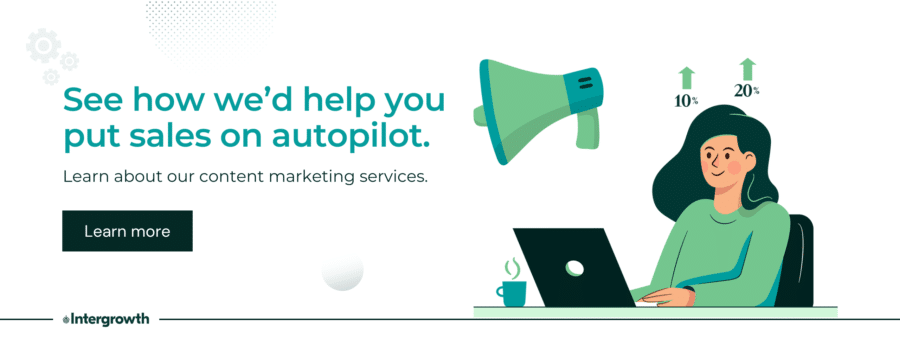- 1. Do I Really Need SEO?
- 2. How Does SEO Work?
- 3. How Do I Improve My Site’s Authority?
- 4. Can I Buy Links to Build Site Authority?
- 5. How Do I Improve My Site’s Relevancy?
- 6. Can People Find My Site On Google Now?
- 7. Do I Need to Hire an SEO?
- 8. What Parts of SEO Should I Prioritize?
- 9. What is the ROI of SEO?
- 10. What Happened to My Organic Traffic?
Table of Contents
Nowadays, it seems like everyone is talking about SEO and how important it is to your business. But what exactly is “SEO” and why does it matter?
We get it: nobody wants to ask questions like this and have someone scoff in their face. Fortunately, we’re here to help. We’ve taken all of the SEO questions that you’ve been hesitant to ask and given detailed responses to each.
Yes, we’ve also included all of those annoying buzzwords. Don’t worry. We’ll explain what those buzzwords mean so you can drop them in front of the most advanced SEOs and seem like a genius.
Without further ado, here are the answers to our favorite SEO FAQs.
Do I Really Need SEO?
Short answer: yes, yes you do.
Why? Picture all of your website visitors as a massive pie. For the average website, 50% of that pie will come from search engines like Google.
Search engines are a discovery tool, meaning that many of these website visitors are discovering your website for the first time. As more and more people discover your website from search engines, you’ll see each other traffic channel (email, social media, etc.) increase as well. In other words, as this part of your pie gets bigger, the rest of your pie will get bigger as well.
Here are a few more SEO stats that should help you to see how important SEO is to your website’s success. And if you happen to own a software-as-a-service brand, our SaaS SEO guide will teach you how to drive traffic to your site.
How Does SEO Work?
Search engines look at 3 primary factors when trying to understand all of the websites in their index: Authority, Relevancy, and Crawlability. We dive deeper into all three SEO principles in the following article.
For now, here’s the abridged summary:
Authority is a measure of how reputable your website is in the eyes of Google and other search engines. Sticking with our pie example, authority is a measure of how big your pie is.
Everybody loves pie, so focus on making yours as big as possible.
Relevancy helps Google to understand what your website is about so it can send the right people to your website. In other words, Relevancy is all about making that 50% of your pie that comes from search engines taste better. Nobody wants a lot of bad pie, so as your pie gets bigger, it becomes more and more important to focus on relevancy.
If you type “cars” into Google, Google will sift through trillions of webpages and order them based on how trustworthy they are, and how relevant they are to “cars.”
Crawlability, often referred to as technical SEO, helps search engines and users to more easily access and use your website. Crawlability is all about making it easier for your friends to eat that pie — putting it out on the table where it’s easy to access; leaving out silverware and plates, etc
SEO is all about helping Google to better understand your website, while also increasing your authority so you start appearing for the search terms that are most valuable to your business.
How Do I Improve My Website’s Authority?
The best way to improve your website’s authority is to get other authoritative websites in your industry to link to your site.
Google looks at the other websites that link back to you as the strongest signal that your website is trustworthy. Google looks at how many backlinks you have and how trustworthy these websites are.
Think quality over quantity here. One link from the New York Times will help your website rankings significantly more than a link from 50 brand new blogs (more on some of our favorite link building techniques here).
So Can I Just Buy a Whole Bunch of Backlinks?
Short answer: no.
Yes, we know that all of those Fiverr deals offering you 50 backlinks for $5 are tempting, but they’re not worth it. Buying links goes against Google’s policies and will destroy your search rankings if you get caught.
If Google does catch you buying backlinks, you’ll see your search rankings plummet. From there, you’ll need to remove those links to your site and submit a reconsideration request for Google to re-analyze your site.
Instead, focus on creating exceptional content and run link building campaigns focused on getting relevant bloggers to link to your content (like this campaign, which helped our client grow 35% in just 3 months).
So what happens when I pay for ads on a website? Isn’t that the same thing?
Not exactly.
Buying links is fair game IF you buy “nofollow” links – links that don’t pass page authority. The backlinks that will most help your rankings are called “dofollow” links. Both help your search rankings. However, dofollow links are much more impactful.
How Do I Improve My Website’s Relevancy?
Start by identifying the words and phrases that your customers are searching for online, and update your website copy to better reflect those words and phrases. If you sell pizzas, make it easy for Google to understand that your website is about pizza.
For more advanced SEO, try working with any of the following keyword research tools to identify the greatest keyword targets for your business: Ahrefs (paid), SEMRush (paid), Google’s Keyword Planner (free), and Moz (paid).
Add these words and phrases to your header tags, title tags, alternate text, inlinks, etc.
Can People Find My Site On Google Right Now?
The easiest way to test this is to go to Google and type in “site:[mydomain.com]” and see if your website pops up. For example, to check if Intergrowth was indexed, I would type “site:inter-growth.co” into search engines.
If your website doesn’t pop up after doing this search, then your site isn’t on Google right now. To fix this, add your website to Search Console and submit your sitemap after verifying your site.
Struggling to find your sitemap? Try typing “[mydomain.com]/sitemap.xml” into your browser. In most scenarios, this will pull up your sitemap, or at least redirect you to your sitemap page. If this doesn’t work, then we have a lot of work to do.
Do I Need to Hire Someone to Do SEO for Me?
No, but how much is 50% of your total website traffic worth to you?
Similar to almost any other profession, you can do it yourself, but will always see the best results when you bring in experts to help. You can do your business’ taxes on your own, but choose to hire a professional because you know that they will be worth the investment.
If your business’ marketing budget is less than a few hundred dollars per month, take the DIY approach to SEO. Any “expert” charging less than a few hundred dollars per month is going to be a risky investment. They may land you in some hot water with Google.
For those who would rather hire a professional, come explore our guide to evaluating SEO companies to ensure that you hire a trusted professional. Or come explore our SEO consulting and SEO-centric content marketing services to see how we would help you to scale your business today.
What Parts of SEO Should I Focus on First?
Our best advice here would be to talk to an SEO expert to get their opinion. That being said, a good general rule of thumb is to check your website’s domain authority using the Moz toolbar.
In most cases, if your site’s authority is less than 40, you should focus on the Authority side of SEO (i.e. getting more reputable websites to link to you). If your site’s authority is greater than 70, focus on the Relevancy side of SEO (setting up a proper SEO foundation).
If your site falls somewhere in the middle, then do a search for 5 of your biggest competitors, and compare your domain authority to theirs. If your domain authority is higher than theirs, then it’s probably best to focus on Relevancy. If your domain authority is lower than theirs, then it’s probably best to focus on Authority.
What is the ROI of SEO?
The ROI of SEO varies from one industry to the next. How valuable would it be to your business to come up as the top recommendation when your customers are searching for you?
Let’s look at an example. 320 people search for the exact phrase “event venue Denver” every month (not to mention those who search for slight variants, like “event venues Denver”).
Being the first result on Google would bring ~110 people to your website every month who were actively searching for event venues in Denver, many of whom had never heard of your brand before. Assuming 0.5% of those people booked an event venue JUST ONCE, this one search term would bring you 6-7 new customers every year.
Ready to get started? Fill out our form and we’ll tell you what you need to do to get started.
I Used to Get Twice as Many Visitors from Google. What Happened?
You probably got hit with an algorithm penalty.
Google updates their search algorithm every day to provide a better experience for searchers. Part of these updates consists of penalizing websites that go against Google’s rules.
There are two major algorithm penalties that could be hurting your search rankings: Panda and Penguin.
Panda is a series of updates to Google’s search algorithm focused on eliminating “thin” content from the internet. Think articles that scraped content from other sites, or short articles that are 100-200 words.
Penguin is a series of updates to Google’s algorithm aimed at eliminating webspam from search engines. Some classic tactics that could get a site penalized under these updates would be keyword stuffing, paying other websites to link back to you, or getting links from a lot of low-quality websites. Use any of those techniques, and you may find that your website doesn’t appear in Google searches (or at least not very high).
Fortunately, your website can recover. Tell us a little about yourself and we’ll help you identify exactly what happened to your site.
SCALE YOUR ORGANIC TRAFFIC
Subscribe to our monthly newsletter





